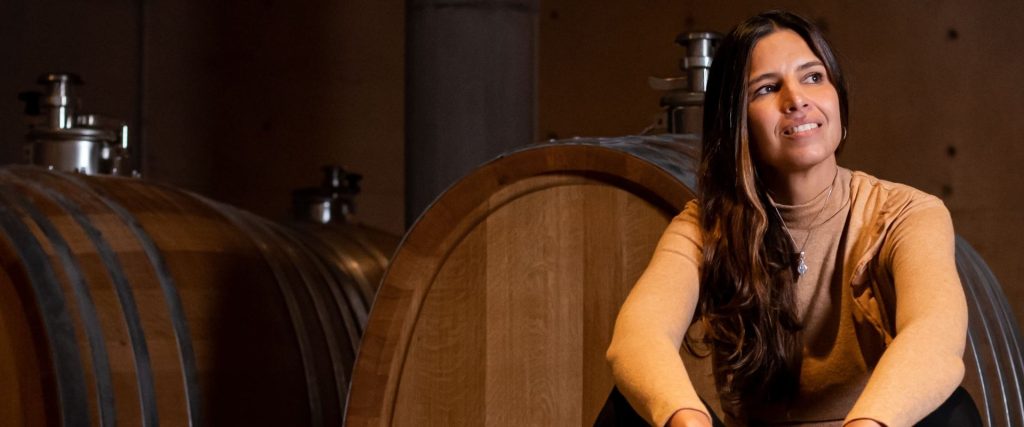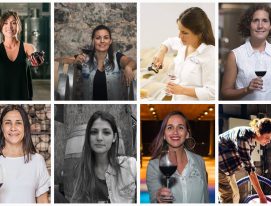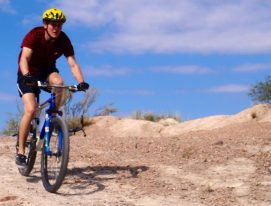Victoria Brond is an oenologist from Mendoza forging an extremely distinguished career in the world of wine. Today, she runs Bodega Alpamanta, one of Argentina’s leading biodynamic wineries. Recently chosen as Argentina’s top emerging oenologist, she is also committed to providing support and defending the rights of her female colleagues.
After receiving her degree in oenology, Victoria Brond went on to work at the National Institute of Viticulture, Bodega Chandon, Bodega del Fin del Mundo (Neuquén, Patagonia) and Nieto Senetiner, making wines according to conventional methods.
Four years ago, she moved into the world of biodynamic winemaking, a decision that didn’t just change her oenological outlook but also allowed her to relaunch the Bodega Alpamanta brand.
“I always knew that I loved working in a laboratory, chemistry and nature, so I decided to study oenology,” she remembers.
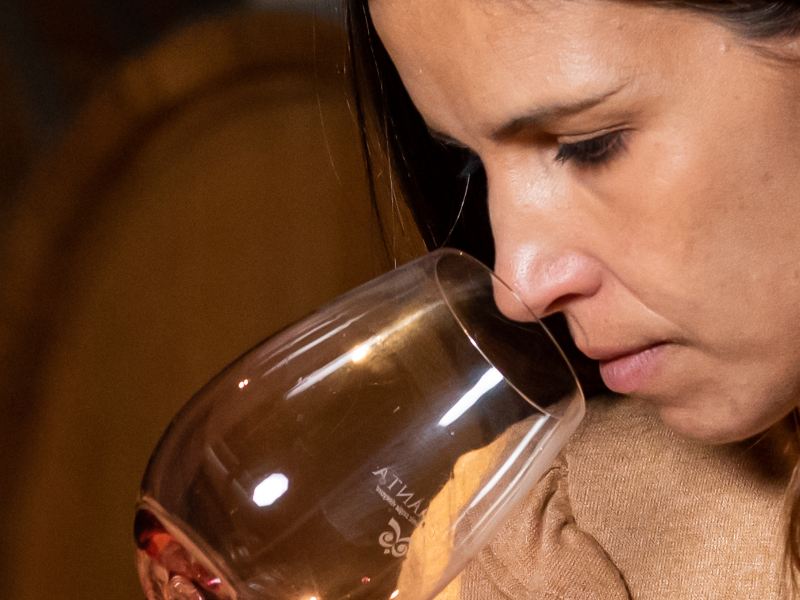
Interview with Victoria Brond
Are women now more involved in the world of Argentine wine than at the beginning of your career?
Very much so. When I studied at university there were just four women out of a course of thirty. Obviously, women didn’t see opportunities in the field due to the fact that there were so few women head oenologists and in management positions. This meant that women weren’t inspired to study oenology and men took all the roles.
That has changed over time and a lot of management and oenology positions started to be occupied by women. However, the head oenologist or general manager still tends to be a man. But I don’t think it’s a question of gender bias so much as the number of men vs. the number of women working in the field after so many years of low uptake.
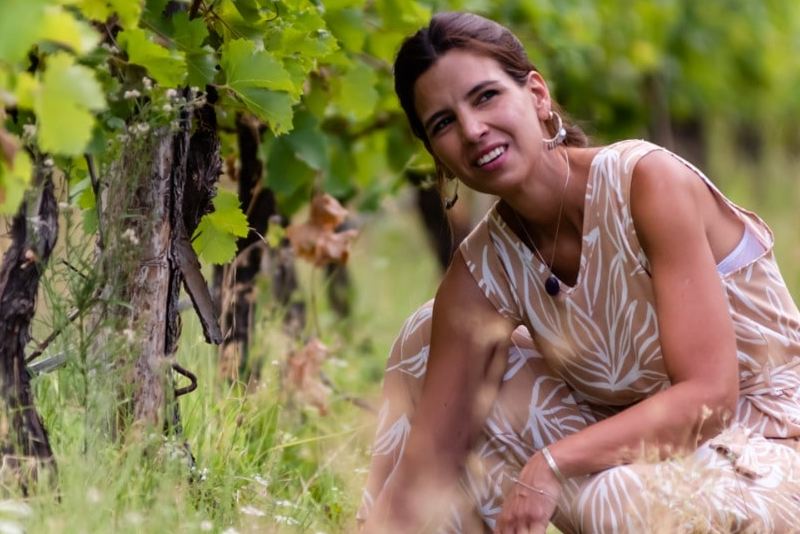
And how do you feel about the changes?
It was very hard to change the paradigm, the idea that viticulture was a male preserve was very ingrained. Today, it can still be difficult to see evidence of progress. For example, a little while ago, an article came out called “The five oenologists that changed history over the past fifty years”, and the photo was of five men. That was very significant. I wondered about that, surely women have made changes over the past fifty years too?
Fortunately, more and more women are occupying significant positions at wineries, developing new products and projects, working alongside the men.
We’re in a more equal position now and it makes me very happy that we’ve smoothed the path for the women who follow us. We’ve managed to change history and that is a very valuable achievement.
Today women winemakers are receiving excellent scores with our wines, being recognized as emerging winemakers and assigned to start new projects from scratch while many investors are entrusting them with developing their wineries. We have far greater visibility and are in a much more equal position than 20 years ago.
How do you think it will continue?
In the future, the numbers of men and women studying will be far more equal. Today, it’s almost half and half and that will result in similar ratios in the professional environment. We’ve made a lot of progress, but we need to keep it up.
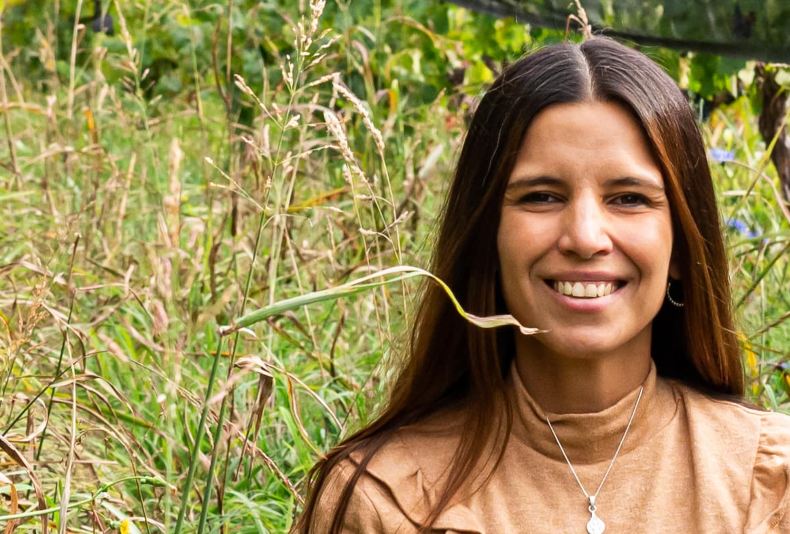
You’re a member of the Women Professionals in Wine club, how do you interact and work together?
I’ve been a member since the start, I was one of the first. We’re a mutual support group that shares information; professionals supporting each other to help with our development, it’s a non-competitive space and of course one that is very good and necessary for the industry. In recent years, we’ve organized seminars and meetings with wine critics, and it’s wonderful that we support each other and know that we’re not alone. We’ve evolved and matured together and as a group.
How did your transition into the biodynamic and organic world come about?
I had learned about the world of forces from my personal life, due to health and family issues, and thus found out about holistic tools. Since then, I’d dreamed of applying my knowledge in the professional realm, making wines, developing projects and training teams. Today I feel that I wanted it so much that I created the opportunity to move to Alpamanta myself. I’d dreamed of it for so long, with such a strong vision, that it came about.
When the offer to join the biodynamic team arrived, I did more training and studied. I didn’t find the process difficult or novel at all because I’d already experienced it in my home life. It came easily and familiarly to me.
What was it that most attracted you about that world and way of winemaking?
Getting into biodynamic agriculture is a one-way trip, because it helps you to unlearn everything that has been drummed into you about the “right way to do things”. It shows us that there is always an alternative. You have to observe a lot and that helps you to be creative from a different perspective. That was what most drew me to the field: the enormous opportunities to be creative. In the biodynamic world, anything is possible, there are no established protocols, all the different creative processes are available to you.
What do you feel that you’ve contributed to Alpamanta and what has the winery given to you?
Ricardo García (the agricultural engineer) and I were involved in the development and construction of the winery, but we also gave it an identity. We established the pathways for many of the operations and processes, which ensured that Alpamanta wines have their own distinctive character. Today, the wines are made employing consistent principles from beginning to end and that was possible thanks to the massive creative leeway we were given, the opportunities to learn, to observe, to make mistakes and get back up again many times over.
You’re also a part of the Vinodinámicos group, how do they work and what are their objectives?
Vinodinámicos is a group of friends and colleagues that employ organic, biodynamic techniques that meets up to provide mutual support and share expertise, research, wines and experience. It’s a group founded on camaraderie and solidarity.
For example, we organized the Argentina-Chile Seminar on Biodynamic Agriculture.
If you enjoyed this interview with Victoria Brond, why not read more about other professionals in the Argentine wine industry by clicking here?

